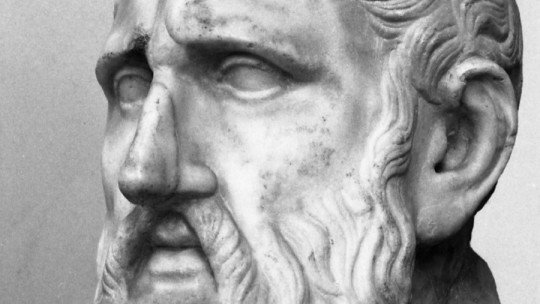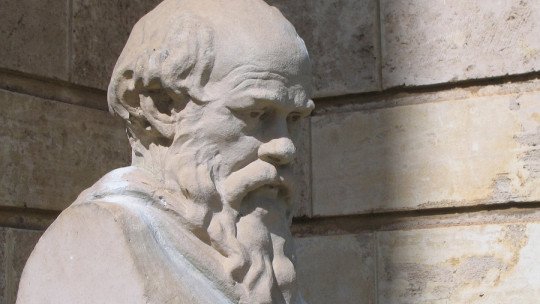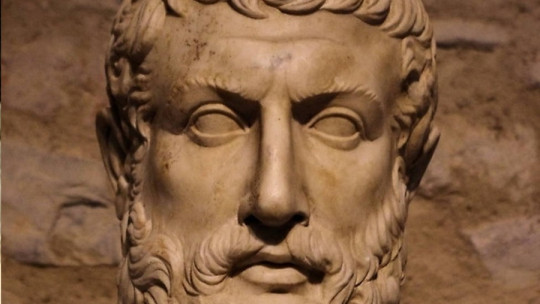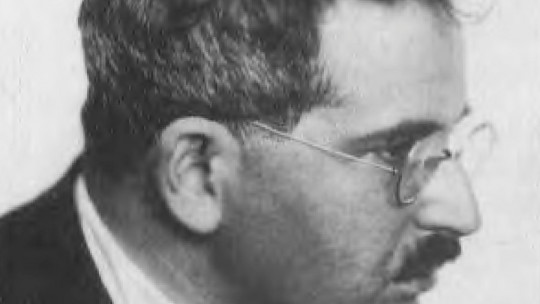
In Diogenes of Sinope practically everything is legend. And this great promoter of the Greek cynical school scandalized and admired his contemporaries in equal measure, which is why he was the target of ridicule, applause and inventions. His life is full of anecdotes, some really hilarious, of which it is impossible to say if they are really based on reality; Many of them are the result of the type of wandering life that the philosopher led and his habit of laughing at the rich and powerful.
Who was Diogenes of Sinope, really, beyond legends and anecdotes? What is your philosophy based on and what are your contributions? In today’s article we focus on the figure of one of the great thinkers of the Cynic current, who put the entire Greek society of the Hellenistic era in check.
Brief biography of Diogenes of Sinope, the great promoter of the Cynic school
We say well, driving, because Diogenes of Sinope was not the founder of cynicism. In reality, this honor is held by the philosopher Antisthenes, of whom our protagonist was a disciple in Athens, although it is no secret that, in this case, the disciple far surpassed the teacher.
The cynical school owes its name precisely to our curious character. And it is that Diogenes of Sinope lived as a wanderer ; He slept in the porches of the temples (or even in jars, in which he is depicted in numerous later paintings) and ate what the citizens wanted to offer him. This “dog” life was what gave him the epithet Diogenes Kynikós, that is, Diogenes the dog. And from here, of course, Diogenes the Cynic.
A wandering life from a very young age
Diogenes the dog It had been Diogenes of Sinope, his birthplace, an Ionian city on the shores of the Black Sea. His father, apparently, was a banker, and had some problems with counterfeiting coins that forced him to flee with his son, still very young They settled in Athens, and there the boy began to frequent the philosophical circles of the city; among them, those of Antisthenes, a former sophist who later became a follower of Socrates.
Soon, young Diogenes begins his wandering. He travels from town to town, living off the charity of the people and the food he collected from nature. So his philosophy was forged, which urged living in accordance with nature This involved only needing the most basic things to live, which, in reality, was reduced to very few things. Famous is the anecdote (as always in the case of Diogenes, it is not known if it has a real basis) that the philosopher always carried with him a satchel in which he carried a bowl and a bowl to eat and drink. One day he saw a boy eating lentils using a piece of bread as a plate, and then going to a fountain and drinking using only his hands. This convinced Diogenes that he didn’t even need his bowl and bowl, so he threw them away.
It is logical to think that, with such a wandering life, the philosopher left hardly anything in writing. Everything we know about him and his doctrine we know, as usually happens, through third parties In particular, the work of another Diogenes, Diogenes of Laertius in this case, called Lives, opinions and sentences of the most illustrious philosopherswritten in the 3rd century BC, sheds a lot of light on the figure of our protagonist.
Austerity, self-sufficiency and truthfulness
The philosophy of Diogenes of Sinope was characterized, as we have already said, by the exaltation of the simple life in accordance with nature. The thinker felt true contempt for any social convention that stifled the truest impulses of the human being Another of the numerous anecdotes collected about him tells that one day he masturbated in a temple, something that raised quite a bit of indignation.
Diogenes did not hesitate to exercise what he considered the inherent needs of people, and it was not unusual to see him defecate or urinate in the middle of the street, in daylight, under the gaze of passersby.
Therefore, one of the first points to understand the cynical philosophy of Diogenes is the absolute rejection of social conventions, since they go against the only important thing, nature. On this point he agrees with the teachings of Zeno of Citium, the founder of Stoic philosophy, although the latter disavowed the more irreverent points of the Cynic philosopher.
Precisely shamelessness towards authority and everything social is one of the most characteristic elements of the doctrine of Diogenes Plato called him a delusional Socrates, since, according to him, he had taken Socratic philosophy, based on truth and dignity, to absurd limits. On the other hand, Diogenes’ wandering and austere life advocated an ideal of self-sufficiency; According to the thinker, human beings had within themselves all the necessary tools to be happy.
Legends about Diogenes
Diogenes of Sinope is perhaps the historical figure about whom the most legends are told. Below, we summarize some of the most famous, since, although their real basis is doubtful, they do present some of the basic teachings of the philosopher, as well as his character and his lifestyle.
“Don’t block the sun from me”
This may be the best-known anecdote about the thinker. Plutarch tells that, one day, the philosopher was lying in the middle of the street, and none other than Alexander the Great approached him. The conqueror greatly admired our character, so he told him: “Tell me anything you want and it will be granted to you.” Neither short nor lazy, Diogenes made a gesture of discomfort and blurted out, angrily: “I wish you to move away, since you are blocking the sun from me.” Surprised, Alexander told his entourage that, “if he were not Alexander, he would like to be Diogenes.”
Plato and the plucked rooster
The rivalry between Plato and Diogenes was quite well known in Athens. It is said that one day, the cynic showed up at the Academy, where Plato taught, with a plucked rooster. Plato had given the answer to the question “what was a man?” the following: a bipedal animal that lacks feathers. With his characteristic lack of shame, Diogenes planted the chicken in front of the other philosopher and said, sardonically: “I have brought you a man.”
Kidnapped and sold into slavery
Another of the anecdotes told about Diogenes is his dark destiny as a slave. It seems that some pirates captured it and sold it as such Although it is not known if this story is true, we can think, based on the philosopher’s character, that he accepted the change in his life with absolute tranquility…
What remains of the cynical school today?
In reality, what we know about the end of his days is that he continued wandering from city to city, preaching his teachings and throwing his jokes at the authorities and society. Her death is shrouded in mystery, and there are also legends about her; Some say that she died from a fall from a horse while riding, although it is difficult for us to imagine a character like Diogenes riding on such a mount.
Currently, the word cynical It is very far from what it originally meant. If now it refers to a false and shameless person, who has no qualms about laughing at others, in the time of Diogenes it was related to a school of thought that promoted the questioning of social norms and called them into question through, yes, a certain amount of mockery And, on the other hand, the name of its great promoter has given its name to one of the best-known syndromes: Diogenes syndrome, consisting of accumulating garbage and elements that have no use. Again, something very far from its essence, as we can see.








